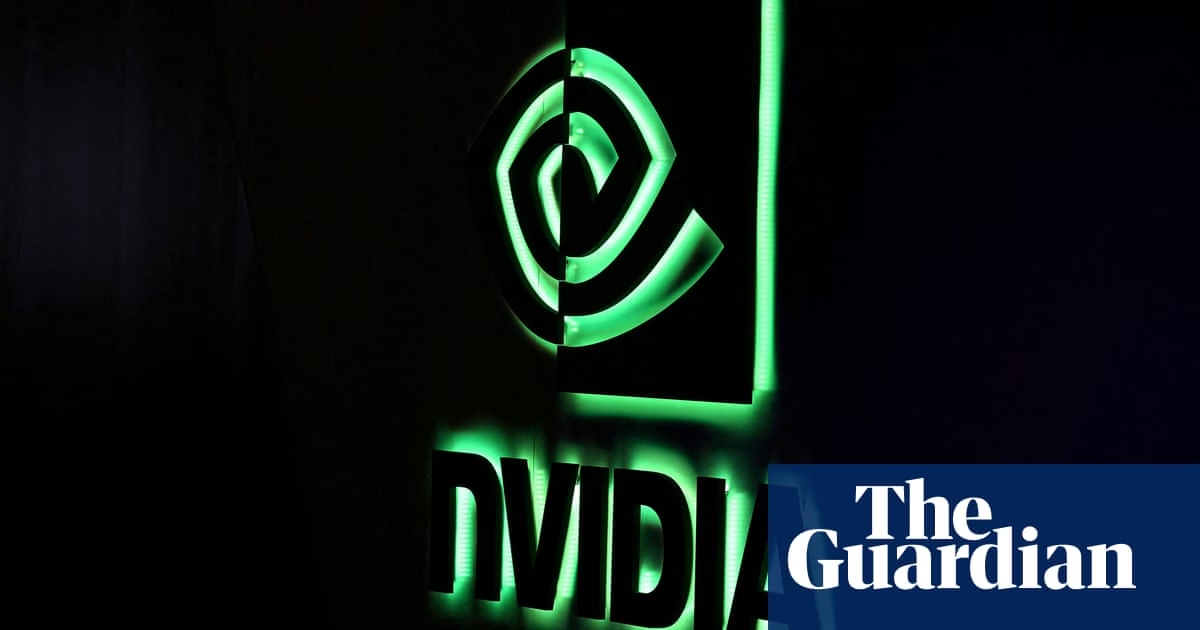Nvidia exceeded investor expectations for the fourth quarter of 2024, seeing revenue increase by 78% compared to the same period last year.
The firm reported $39.3 billion in revenue, surpassing analyst forecasts of $38.25 billion. It also announced $0.89 in earnings per share on Wednesday, exceeding expectations of $0.84.
Investors were keen during the chipmaker’s earnings call for signs of waning demand for its semiconductors, a possibility that could indicate a slowdown in the AI-driven market surge that has propelled the company to a market value of $3.1 trillion. Nvidia’s financial results, however, suggested no such slowing down.
This earnings call provided the first insight into the company’s production and sales since China’s DeepSeek AI unveiled an AI model that outperformed many American models using a fraction of the training and investment. The introduction of DeepSeek initially caused a significant drop in Nvidia’s valuation, as it appeared to show that new models do not necessarily rely on the company’s priciest, top-tier graphics processing units (GPUs), which most cutting-edge models from the US do.
In his opening remarks, Nvidia CEO Jensen Huang stated that demand for Blackwell, the company’s premium GPU, remained robust.
“Demand for Blackwell is incredible as reasoning AI introduces another scaling law – increasing compute for training makes models smarter, and increasing compute for deep thinking makes answers smarter. We’ve successfully scaled up the massive production of Blackwell AI supercomputers, achieving billions of dollars in sales in its first quarter. AI is advancing at lightspeed as agentic AI and physical AI set the stage for the next wave of AI to revolutionize major industries,” said Huang.
While analysts expected Nvidia to maintain its market leadership in AI chip production, recent developments present new challenges to its market dominance.
Most recently, TD Cowen analysts reported that Microsoft, one of Nvidia’s largest customers, was cancelling leases with private data center operators. Investors were concerned about the sustainability of massive investments in AI infrastructure, including Microsoft’s $80 billion, which could imply reduced spending on Nvidia’s products.
Despite these concerns, neither DeepSeek nor the cancelled leases had an immediate impact on the company’s data-center revenue. Nvidia, controlling over 90% of the GPU market, reported data-center revenue of $35.6 billion for the final quarter of FY 2025. Wall Street projections stood at $34.09 billion. The company also forecasted $43 billion in revenue for the first quarter of fiscal year 2026.
Huang noted that DeepSeek has actually increased interest in Blackwell because reasoning models, like the one DeepSeek demonstrated, require 100 times more computing power.
“We designed Blackwell for this moment,” he said.
Huang emphasized during the call that the company anticipates demand for AI infrastructure to keep growing as technology evolves. “Near-term, midterm, and long-term, all indications point to increased demand,” he said.
after newsletter promotion
“We’ve really just begun to explore consumer AI, search, and some amount of consumer generative AI … the early days of software,” Huang said. “The next wave is approaching. Agentic AI for businesses, physical AI for robotics, and sovereign AI as different regions develop their own AI infrastructure.”
Following the earnings report, analysts noted that Nvidia’s ongoing success validated the notion that market anxieties over DeepSeek have not materialized.
“Competitors are making advancements, but cutting-edge models require the advanced computing resources that Nvidia provides,” said Jacob Bourne, a technology analyst at eMarketer. “Blackwell generating ‘billions in sales’ validates Nvidia’s top position just as the market is expanding into agentic and physical AI. Short-term volatility remains a possibility, but Nvidia’s market dominance remains unrivaled.”
However, some analysts suggest that market reactions have been lukewarm because the stock already reflects extremely high growth expectations.
“Nvidia’s recent quarterly sales exceeded its total annual revenue from just two years ago … but with the stock already reflecting sky-high growth expectations, investors were hoping for an even bigger beat,” stated Jacob Falkencrone, global head of investment strategy at Saxo Markets. “Some analysts were expecting guidance figures above $45 billion, and while Nvidia posted strong numbers, it wasn’t the ‘blowout’ some were hoping for.”
The company also indicated that the impact of Donald Trump’s tariff proposals on its business remains unclear.
Source: https://www.theguardian.com/technology/2025/feb/26/nvidia-fourth-quarter-earnings-deepseek








